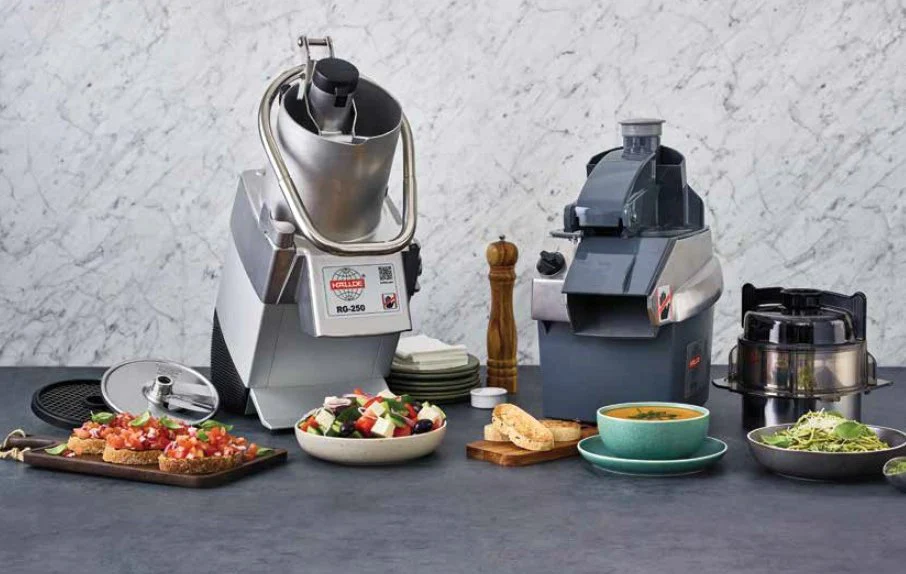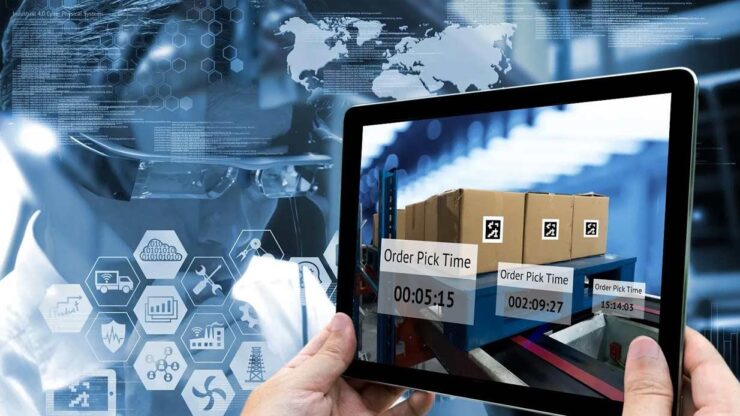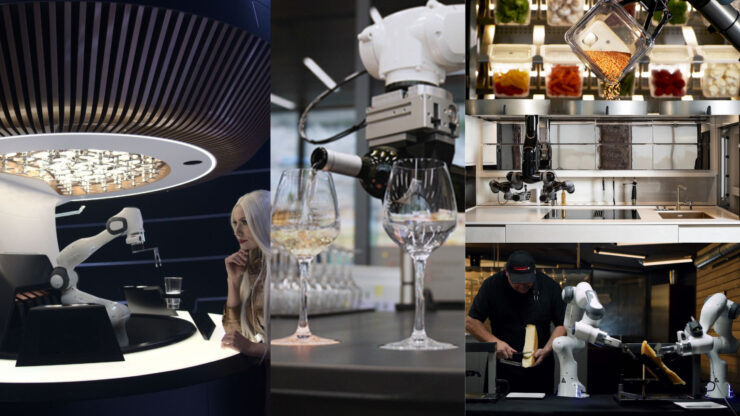The kitchen, often regarded as the heart of the home, is experiencing immense improvement. All thanks to technology!
It is no longer merely the place where food is made; rather, it is becoming a center of innovation that blends culinary arts and technology to generate magical experiences for guests.
Imagine being a chef and watching your culinary concepts come to life with the help of technological marvels, making the process more efficient, creative, and enjoyable.
You might be wondering, is it even possible? The answer is yes! Here are some of the most explored ways that illuminate the transformation.
Let’s find out!
1. Smart Kitchen Appliances

The modern kitchen is rapidly evolving, with technology playing an important role. With smart kitchen appliances, chefs and home cooks alike can enjoy unparalleled control over their cooking processes.
Imagine a refrigerator that not only tells you what ingredients you have but also suggests recipes to utilize them best. Similarly, think about an oven that recognizes the dish inside and adjusts its temperature for optimal cooking.
These intelligent devices are all about making cooking more intuitive, reducing room for error, and ensuring consistently delicious results.
2. The Digital Shift in Culinary Arts
In today’s digital age, chefs no longer solely rely on traditional cookbooks. Instead, they’re embracing the convenience of online platforms to both discover and share recipes.
Mobile devices have become indispensable tools in this evolution, making it simple for chefs to explore new dishes and showcase their creations. However, not everyone is tech-savvy.
For some, tasks like how to transfer pictures from android to mac might pose a challenge. Yet, with the right guidance and resources, these hurdles can be easily overcome. As the culinary world continues its digital shift, it’s essential for professionals to adapt and leverage technology to its fullest.
3. Augmented Reality (AR) and Virtual Reality (VR)

Beyond the realm of entertainment, AR and VR are revolutionizing the culinary industry. Ever imagined visualizing a dish in 3D before actually cooking it?
With augmented reality AR, chefs can preview their creations, making adjustments before bringing the dish to life.
Meanwhile, VR offers a simulated kitchen environment, ideal for training. Aspiring chefs can practice their skills, learn new techniques, or even familiarize themselves with a kitchen setup before stepping into the real thing. Of course, this will ensure they are always one step ahead.
4. 3D Food Printing
3D food printing is revolutionizing the food landscape. This innovative approach grants chefs unparalleled creative freedom, allowing them to craft dishes with intricate patterns and structures that traditional methods couldn’t achieve.
But its ability isn’t limited to aesthetics. Beyond crafting visually stunning dishes, 3D food printing offers functionalities that address health concerns.
It can tailor-make foods to have specific nutritional compositions, ensuring meals are not only delicious but also aligned with individual dietary requirements.
5. Advanced Food Preparation Equipment

To achieve perfection, chefs often rely on tools that offer precision. Enter advanced food preparation equipment.
Devices like sous-vide machines provide accurate temperature control, ensuring dishes are cooked to perfection.
Modern blenders and food processors, with their multi-function capabilities, allow chefs to experiment with diverse textures and techniques.
From creating velvety purees to crafting the perfect emulsion, the possibilities are endless, and the results? Nothing short of gastronomic excellence.
6. Sustainable Kitchen Technologies
In an era where environmental consciousness is vital, kitchens are no exception to the eco-friendly movement.
Advanced sustainable kitchen technologies are steering the culinary industry towards greener practices.
For instance, there are composting devices that transform kitchen scraps into nutrient-rich compost, aiding in organic farming. Likewise, innovations in energy-efficient appliances, from induction cooktops to smart fridges, minimize energy consumption.
Further, water-saving dishwashers and sinks equipped with water conservation technologies not only reduce water bills but also contribute to a more eco-conscious kitchen.
7. Intelligent Inventory Management

Mismanagement of inventory in the kitchen can lead to significant wastage and inefficiencies.
Thankfully, intelligent inventory management systems are changing the game. With features like real-time stock tracking, predictive ordering, and shelf-life monitoring, these systems minimize waste.
They can also analyze consumption patterns to forecast future demand, ensuring ingredients are always fresh and available.
The digital integration means chefs can access inventory data anytime, anywhere, helping them plan menus and manage resources effectively.
8. Robotic Kitchen Assistants
Picture a kitchen where a robot perfectly dices vegetables or stirs a sauce to the right consistency.
The introduction of robotic kitchen assistants is making this a reality. These robots are designed to perform tasks with high precision, speed, and consistency.
As they can be programmed to mimic a chef’s unique techniques, they ensure that the final dish maintains the chef’s signature touch.
Moreover, by taking over time-consuming tasks, they free up chefs to innovate and experiment, elevating the culinary experience.
9. Food Delivery Apps and Platforms

Gourmet food is no longer confined to restaurant premises. Thanks to food delivery apps and platforms, culinary masterpieces can now be savored in the comfort of one’s home.
These platforms offer chefs an avenue to showcase their dishes to a broader audience, reaching food enthusiasts who might not visit their physical location.
For chefs and restaurateurs, this digital evolution also provides opportunities to test new dishes, gather feedback, and even establish pop-up virtual kitchens, shaping the future of dining experiences.
10. AI-Powered Flavor and Recipe Prediction
Artificial Intelligence (AI) is making significant strides in the culinary realm. Have you ever wondered how a combination of ingredients would taste? AI can predict that for you.
By analyzing vast amounts of data on flavor compounds, cooking methods, and popular recipes, AI algorithms can suggest new and unique flavor combinations.
Moreover, these systems can also assist chefs in creating innovative recipes tailored to specific dietary requirements or regional preferences.
By doing so, chefs can offer an ever-evolving menu, surprising and delighting their patrons with novel culinary experiences.
Wrapping It All Up
The blend of culinary arts and technology is transforming the kitchen into a place of endless possibilities for chefs. Smart appliances, digital innovations, and sustainability-focused technologies are reshaping the way chefs create, experiment, and share their culinary visions. From accessing recipes with a click to managing kitchen inventory intelligently, technology ensures that the kitchen experience is more streamlined, precise, and enjoyable.

